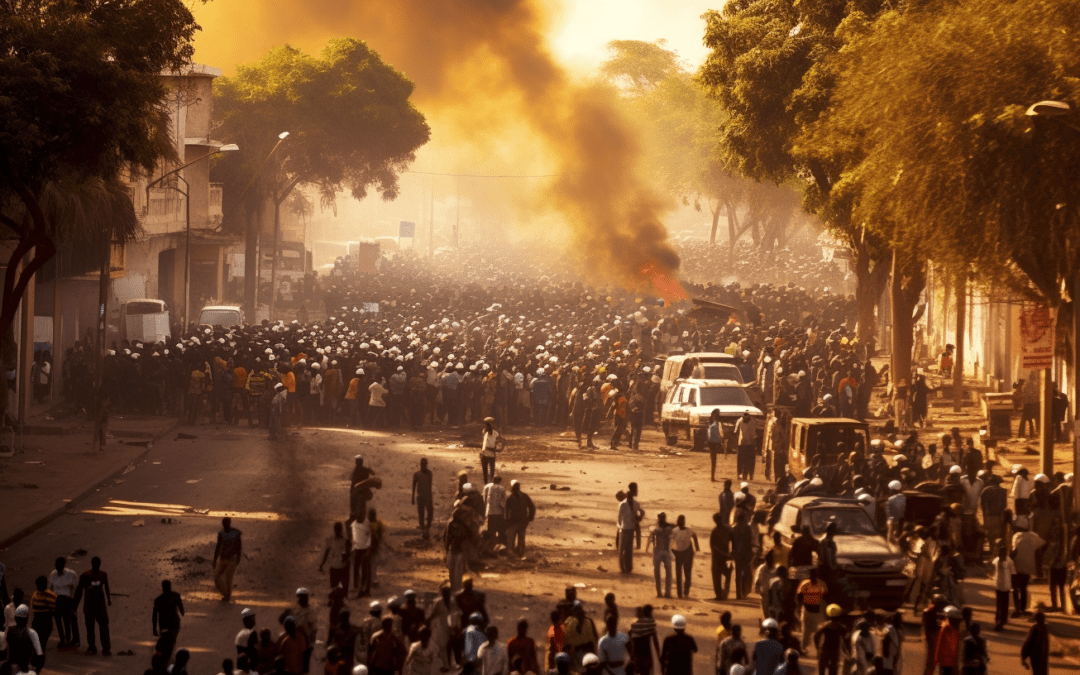Senegal’s Political Unrest: A Deep Dive into the Conflict Sparked by Opposition Leader Ousmane Sonko’s Conviction
Introduction
In recent times, Senegal, a West African nation known for its democratic stability, has been thrust into a state of political unrest. The catalyst for this turmoil is the conviction of opposition leader Ousmane Sonko, a development that has sparked widespread protests and violence. This article delves into the details of this political crisis, examining its origins, the international response, and the implications for Senegal’s future. The information presented is based on a detailed report by CBS News.
The Conviction of Ousmane Sonko
Ousmane Sonko, a prominent figure in Senegal’s political landscape, was recently convicted of corrupting youth but acquitted of rape charges. Sonko, who secured third place in Senegal’s 2019 presidential election, enjoys considerable popularity among the country’s youth. His conviction has been perceived by his supporters as a government effort to derail his candidacy in the upcoming 2024 presidential election. Sonko is viewed as the main competition for President Macky Sall, and he has publicly urged Sall to declare that he will not seek a third term in office.
The Outbreak of Protests and Violence
The conviction of Sonko ignited a series of protests and violent clashes across the country. Demonstrators, expressing their discontent, resorted to throwing rocks, burning cars, and damaging supermarkets. In response, the police deployed tear gas, and the government mobilized the military in tanks to quell the unrest. The clashes have resulted in the death of 15 people, including two security officers, according to government reports.
The International Response and Human Rights Concerns
The escalating violence in Senegal has drawn international attention and concern. France’s ministry for Europe and foreign affairs, among others, has expressed its apprehension over the situation and called for a resolution in line with Senegal’s long-standing democratic tradition. Human rights groups have also voiced their condemnation of the government’s response to the protests, which has included arbitrary arrests and restrictions on social media platforms such as Facebook, WhatsApp, and Twitter.
The Impact on Senegal’s People and Institutions
The political unrest has had a profound impact on the Senegalese people, who are blaming the government for the violence and loss of lives. Seynabou Diop, a woman whose 21-year-old son, Khadim, was killed in the protests, holds President Macky Sall responsible. She believes that if Sall had communicated with the Senegalese people, especially the youth, the current problems might have been avoided.
Analysts warn that if the violence continues, it could threaten the country’s institutions. The West African country has been seen as a bastion of democratic stability in the region. Sonko’s PASTEF-Patriots party has called on Senegalese to “amplify and intensify the constitutional resistance” until President Sall leaves office.
The Road Ahead
Under Senegalese law, Sonko’s conviction would bar him from running in next year’s election. However, the government said that Sonko could ask for a retrial once he was imprisoned. It was unclear when he would be taken into custody. Government spokesman Abdou Karim Fofana argued that the protesters themselves posed a threat to democracy. He said the damage caused by months of demonstrations had cost the country millions of dollars.
Wrapping Up
The political unrest in Senegal underscores the complex dynamics of democracy and power in the country. As the
nation grapples with this crisis, the international community watches with bated breath, hoping for a peaceful resolution that upholds Senegal’s democratic tradition. The situation serves as a stark reminder of the importance of open dialogue, respect for human rights, and the rule of law in maintaining political stability.

